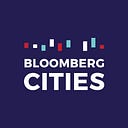Lessons from Mayors Challenge winners
Pablo Picasso was, of course, speaking of art when he said, “I begin with an idea, and then it becomes something else.” But he could have just as easily been describing government innovation.
That’s because, when it comes to solving the urban challenges — or creating a masterpiece, for that matter — it’s not enough to have only a bold idea. You’ve also got to test it, learn from it, and adapt it over time.
The importance of iterating and improving an already great idea was one of the overarching messages from representatives from Providence, R.I.; Bogotá, Colombia; and Athens, Greece — winners of the first three Mayors Challenges — when they were on hand in New York City last week to speak to representatives of the 35 Champion Cities currently competing in the 2018 Challenge.
“We went back to the drawing board”
Providence had to make several pivots in the implementation of its early-childhood learning program Providence Talks. The program, a 2013 winner, aims to make sure that young children from low-income families hear at least 21,000 words a day — a critical factor in language and literacy development. Executive Director Caitlin Molina said the initial plan for Providence Talks depended solely on at-home training of parents, which made it difficult for the program to reach its 2,500-family goal.
“We realized we weren’t going to reach all of the families we wanted to serve,” Molina said. “So we went back to the drawing board…and came up with these three different service-delivery models [at-home, group, and child-care providers], each of which serve a very unique population of families.”
[Read: Unleashing the power of public prototyping]
Molina also had to navigate a mayoral transition while implementing Providence Talks. She said the iterative approach to building the program left plenty of room for the new mayor, Jorge Elorza, to make his imprint. “The prototyping experience gave us the opportunity to rebrand the initiative in a way that our new mayor could appreciate,” she said. “It was very important to him that we work with childcare providers. I remember my first meeting with the new mayor, and he said to me, ‘I love this idea of Providence Talks, and I need to make it my own’. And I want to engage childcare providers. That’s how we evolved and started thinking about this idea of a professional development model for early-childhood educators.”
“Stretch, strengthen, and refine”
Amalia Zepou of Athens agreed that flexibility is critical to implementing bold ideas. A 2014 winner, Athens built an online platform to empower community groups to engage in problem solving and municipal reform. “The idea has become something so different from what it was initially,” she said. “Those three magical words — stretch, strengthen, and refine — I keep wanting to do it all the time.”
Zepou said prototyping new ideas in Greece, as elsewhere in government, can be difficult. “It’s against the nature of our bureaucracy,” she said. “Because you have to do things differently. People are not used to it.” But for this project, what mattered most was building goodwill with citizens, who were not trusting of government and institutions, especially during Greece’s economic crisis.
“Don’t try to ‘engage’ new people,” she said. “What you should spend your time doing is finding people who are already there, who already care for the thing you are doing. See them. Learn from them. This is your prototyping front line. To get your idea stronger, go see what people are doing in the field. That is what civic engagement is about. It’s about the municipality being able to see those who naturally do things for the city.”
[Get the latest news on urban innovation! Subscribe to SPARK.]
“Be creative in the way you prototype”
Like Zepou, Carolina Avila Morales of Bogotá also lamented the difficulty of testing new ideas in the public sector. “Because of the procurement process,” she said, “it’s not easy to pilot or prototype, because we still have to do an open bid.” It was complicated further by the fact that Bogotá, a 2016 winner, is implementing an idea for children: to make their commute times — which can be two hours each way — shorter.
“People in government are always afraid of testing with children,” she said. So she found a workaround: “I actually just started talking to my sister and my niece, who is 10, and said: ‘OK, I need some of your friends.’ And I was working with them close to my sister’s house.”
The city’s goal of just shortening commute times turned out to be too broad. As a result, Avila said they are pivoting to also include making the commutes safer and happier based on feedback from children. The revised idea, still under development, is to create safer routes for kids to walk and bike to school. As kids caravan together in “walking school buses,” they’ll play simple games led by adults, like counting the number of steps between blocks.
“My advice is to be creative in the way you prototype,” Avila said. “Because if you wait until you have everything in place, you might not do anything.”
